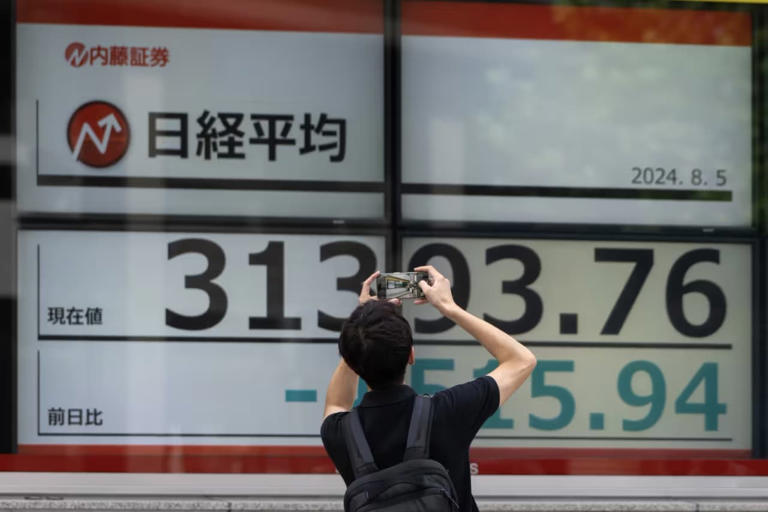Stocks and the Japanese yen saw little movement following Prime Minister Fumio Kishida’s announcement on August 14 that he will not seek re-election as the leader of the Liberal Democratic Party (LDP). Despite this political change, Japan’s economic policies remain largely unchanged, reflecting a degree of stability in the No. 4 economy.
Yen’s Strength and Market Reactions
The yen has strengthened significantly, rising 8% against the U.S. dollar since early July. This appreciation coincides with a 4% drop in the iShares MSCI Japan exchange-traded fund (ETF) since July 11, a period marked by softer U.S. inflation data that fueled expectations of Federal Reserve interest rate cuts. The yen’s rise is linked to the dynamics of the yen carry trade—a strategy of borrowing in yen to invest in higher-yielding assets abroad. As U.S. 10-year Treasury yields have decreased by 0.5 percentage points since July, the yield gap between Japan and the U.S. has narrowed, prompting a retreat from this trade.
Impact on Japanese Companies
The Japanese stock market, heavily influenced by global manufacturing giants such as Toyota Motor, Sony Group, and Hitachi, reflects the effects of a stronger yen on overseas earnings. These companies, which generate around 60% of their profits internationally, benefit from the translation of foreign earnings into yen when the currency is weaker. With the yen currently trading around 149 to the dollar—up from a low of 161—Japanese imports are becoming more affordable, potentially easing inflationary pressures and benefiting domestic consumers.
The Bank of Japan’s recent policy shift to end eight years of negative interest rates, raising the rate to 0.25%, has been described as the most significant monetary policy adjustment in a decade. This move aims to bolster the yen further and address inflationary concerns, which were a central issue for Kishida’s administration. Analysts, such as Aaron Hurd from State Street Global Advisors, view this policy change as a critical development in Japan’s economic strategy.
Financial Sector Outlook
Japanese financial stocks, including those of Mitsubishi UFJ Financial Group, Sumitomo Mitsui Financial Group, and Mizuho Financial Group, have experienced significant declines, with shares falling more than 10% in the past two weeks. Despite this, there is optimism about the domestic financial sector. Michael Kelly of PineBridge Investments and Daniel Hurley of T. Rowe Price are bullish on Japanese stocks, particularly financials. They anticipate that rising interest rates could boost loan growth and benefit banks, aligning with the broader positive sentiment about Japan’s economic prospects.
Broader Economic Context
However, Japan’s economy remains vulnerable to global economic uncertainties, including potential recessions in major markets like the U.S. and China. Marko Papic of BCA Research highlights that fears of a U.S. recession and ongoing economic challenges in China are significant concerns for Japan. Despite this, there is a prevailing belief among investors that Japan is on a path to recovery after decades of stagnation. Labor costs in Japan have become competitive relative to other regions, including parts of China, and efforts to enhance corporate governance and increase shareholder value through dividends and buybacks are seen as positive steps.
Future Outlook
Looking ahead, Japan’s stock market is considered one of the most undervalued among developed economies. T. Rowe Price’s Hurley predicts that Japan’s market will continue to revalue, potentially reaching levels comparable to Europe and eventually the U.S. While the timing of this potential adjustment remains uncertain, there is a general expectation of positive momentum, driven by structural reforms and an improving economic environment.
In summary, Japan’s recent political and economic developments, alongside shifts in currency and financial markets, reflect a complex landscape. While challenges remain, particularly regarding global economic conditions, the country’s strategic adjustments and ongoing reforms offer a foundation for cautious optimism among investors.
